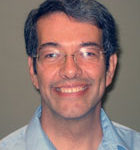





Interview Date: May, 2011
Cathy: Can you tell me a little bit about how you became involved with the issue of family violence?
Juan: I was fortunate in that I did not come from a family where there was violence – I did not witness violence in my childhood or in my extended family. But I did come from a family where social justice was important. My wife is the one who started to talk about issues related to gender equality. I realized that as a man, if I were to adopt a traditional male role, I would be limiting and hurting myself as well as women. I got together with a group of men in the 1980s and started a reflection group. We wanted to get outside the “man box” and become more genuine with each other about our feelings. As a next step, that group of men decided to take a stand against violence against women. One thing led to another and I ended up working both as a community organizer and running groups for men who use violence.
Cathy: Can you explain some of the programs that Futures Without Violence runs?
Juan: Yes. We do many different things but my work is mainly about engaging men and also working with children. In terms of engaging men, one of our biggest programs is called Coaching Boys Into Men. It involves working with high school coaches so that they can teach student athletes what it means to respect women. I like to work with a larger framework that could be applicable in many fields, including the church. For example, youth ministers could have an extraordinary role using modeling and the Bible to talk about respect for young women and girls. The beauty about this particular approach is that there’s something about inviting men to do something for kids that seems to be a very effective engagement tool. Rather than addressing men’s issues with violence directly, coming at them through their involvement with youth invites them to look at their own lives. A lot of my work has also focused on the intersection between fatherhood and violence. For some men – not for all – fatherhood can be a very powerful motivator for change, especially for men who are not directly abusive to their kids. Sometimes, when they realize that their violence to their female partners is doing damage to their kids, that can be the first step towards change.
Cathy: In your work, what would you say is the greatest blessing?
Juan: That’s a beautiful question. Well, I think the greatest blessing is that I have seen men change to different increments. It has fed my hope. I have been doing this for twenty years and I have to have hope. I actually have witnessed people really turning their lives around and that’s very comforting. And I have seen other men that don’t change and that’s obviously discouraging too.
Cathy: What’s the biggest challenge in doing your work?
Juan: The biggest challenge is that both at the societal and the individual level, men are either in denial about the issue or they don’t want to get involved. Just bringing men to the table is very difficult. Also, working directly with men who batter, there are those who will not change and that can be very discouraging as well.
Cathy: If you had to give a piece of advice to a religious leader who wants to engage men in his congregation in this kind of work?
Juan: There’s a couple of ways, I think. The beauty of a church is that it is a contained community and there’s not many of those in our society. It could be a great place to create a culture that does not allow for violence against women to happen. There are materials out there to help with this – one being the DVD that we produced called “Something My Father Would Do.” Church men discussing fatherhood would be a very good thing. Asking men to help mentor the young men and youth in the congregation about what it means to be an outstanding Christian could be a very powerful way to create change.

Juan Carlos Arean
(Senior Program Director)
Setting:
PASCH Conference 2011Agency:
Futures Without Violence
Location:
Columbia Bible College, Abbottsford, BC